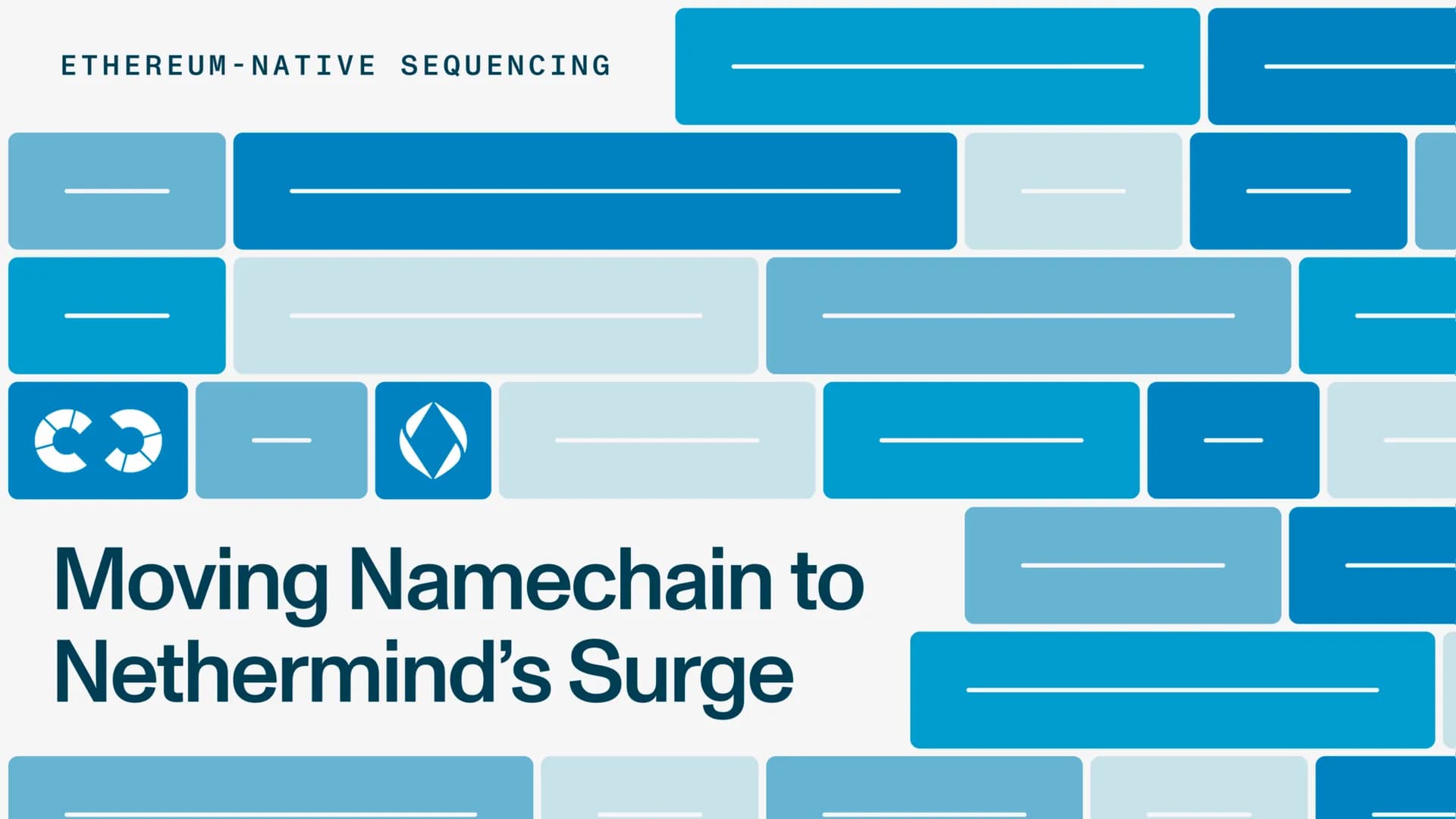ENS Namechain Shifts to Nethermind's Surge on Taiko Stack, Targets Q2 2026 Testnet

The Ethereum Name Service (ENS) has announced a significant strategic move, migrating its dedicated Layer 2 solution, Namechain, to Nethermind's Surge framework, which is built upon the Taiko stack. This decision marks a pivotal step in ENS's efforts to enhance the decentralization, speed, and censorship resistance of its naming services. The public testnet for Namechain is anticipated to launch in the second quarter of 2026.
"ENS is moving Namechain to @Nethermind's Surge, a based rollup framework built on the @taikoxyz stack," stated the official ens.eth account on social media. The announcement further emphasized, "We have always believed that based sequencing and native rollups best support the core values of decentralization necessary for Namechain: fast finality, Ethereum-native settlement, and censorship resistance."
Namechain, envisioned as a fully based zero-knowledge (ZK) rollup, aims to provide dedicated blockspace for ENS users, promising faster transactions and significantly lower gas fees. The adoption of Nethermind's Surge, a high-performance rollup template, allows ENS to leverage Ethereum-native sequencing without relying on centralized operators, aligning directly with its mission for maximal decentralization from day one. Nethermind provides the infrastructure and Surge framework, while Taiko contributes its battle-tested based sequencing and preconfirmation protocols.
This collaboration is set to deliver a Stage 1 rollup at launch with a clear path to Stage 2, ensuring robust security and scalability. Taiko's technology, having processed over 50 million mainnet transactions, forms a reliable backbone for Namechain. The integration of Nethermind's client further optimizes performance, demonstrating a "Gigagas" capability, handling over a billion gas units per second.
The migration is part of the broader ENSv2 upgrade, which involves re-architecting the ENS protocol to extend its capabilities to the new Layer 2 network. This strategic shift underscores ENS's commitment to scaling blockchain identification and improving user experience while maintaining strong ties to Ethereum's core principles. Users can expect improved overall performance when managing their blockchain names and addresses upon Namechain's eventual mainnet launch.